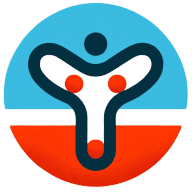How Do You Manage Adrenal Insufficiency?
Ever wondered how to effectively manage adrenal insufficiency? This Q&A with medical professionals shares a total of seven practical tips, starting with incorporating Mindfulness-Based Stress Reduction and ending with the essential advice to carry an emergency kit and medical ID. The compilation provides a comprehensive guide to navigate everyday life with this condition. These insights aim to empower and educate, ensuring optimal management and improved well-being.
- Incorporate Mindfulness-Based Stress Reduction
- Maintain a Consistent Daily Routine
- Adhere Strictly to Prescribed Medications
- Follow a Nutrient-Rich Balanced Diet
- Use Relaxation Techniques for Stress Management
- Prioritize Adequate Sleep and Rest
- Carry an Emergency Kit and Medical ID
Incorporate Mindfulness-Based Stress Reduction
One unique tip for managing adrenal insufficiency is to incorporate mindfulness-based stress-reduction techniques into your daily routine. As a healthcare professional, I genuinely believe that stress management is important for anyone dealing with adrenal issues. From my experience, stress can significantly impact adrenal function, so finding effective coping strategies is essential. Techniques like meditation, yoga, or even simple deep-breathing exercises can help calm the mind and support overall well-being.
When I advise my patients to embrace mindfulness, I often suggest starting with just a few minutes each day. You might find a quiet space where you can focus on your breath and let go of the day's distractions. Over time, this practice can help build resilience against stress, which is crucial for adrenal health. I know firsthand how embracing mindfulness has changed many lives by enabling people to have more control over their stress and emotions. Seeing such great shifts is incredibly fulfilling, and I firmly think that mindfulness can be an effective tool on your path to improved health.

Maintain a Consistent Daily Routine
One crucial tip for managing adrenal insufficiency is maintaining a consistent daily routine, especially around stress management, rest, and medication. Patients with adrenal insufficiency often struggle with unpredictable energy levels and stress responses due to their inability to produce adequate cortisol. In these cases, creating a stable schedule for meals, medication, and rest can help regulate their energy and prevent fatigue. Additionally, stress management techniques such as mindfulness, gentle physical activity, and proper hydration are essential to keep cortisol levels balanced.
In my 30 years as a physiotherapist, I've treated several patients with adrenal insufficiency who also suffered from musculoskeletal complications due to chronic fatigue and joint pain. One case that stands out is a young woman who struggled with both adrenal insufficiency and severe posture-related back pain. By working closely with her endocrinologist and incorporating gentle Pilates-based exercises into her routine, we were able to improve her posture while helping her manage her energy levels effectively. My background in musculoskeletal health allowed me to design a program that not only addressed her physical pain but also took her hormonal condition into account. As a result, she was able to improve both her mobility and her overall well-being, highlighting the importance of an integrated approach in managing complex health conditions.

Adhere Strictly to Prescribed Medications
Managing adrenal insufficiency requires strict adherence to prescribed medications. Consistent hormone replacement is crucial to maintain proper body functions. Missing doses can lead to serious health complications and must be avoided.
To ensure medication is taken correctly, setting reminders or using a pill organizer can be beneficial. Regular check-ups with a healthcare provider are also essential. Make a plan today to ensure you never miss a dose.
Follow a Nutrient-Rich Balanced Diet
A balanced diet rich in nutrients is vital for those with adrenal insufficiency. Ensuring adequate sodium intake is important since the body may lose more salt. Foods high in healthy fats, proteins, and whole grains can support overall health and energy levels.
Avoiding processed foods and sugary snacks can make a big difference. Incorporate nutrient-dense foods into your daily meals. Start planning your meals to include all the necessary nutrients.
Use Relaxation Techniques for Stress Management
Managing stress is key in controlling adrenal insufficiency. Using relaxation techniques, such as deep breathing or meditation, can help regulate stress levels. Therapy sessions can also provide tools and support for coping with daily stressors.
High stress levels can worsen symptoms, making management harder. Prioritize finding time each day to relax and unwind. Begin integrating relaxation methods into your routine starting today.
Prioritize Adequate Sleep and Rest
Adequate sleep and rest are imperative for those dealing with adrenal insufficiency. The body heals and restores itself during sleep, which is crucial for adrenal function. Establishing a regular sleep schedule can help improve sleep quality.
Creating a bedtime routine, free from screens, can promote better rest. Poor sleep can exacerbate symptoms significantly. Commit to prioritizing your sleep and implement a bedtime routine tonight.
Carry an Emergency Kit and Medical ID
Carrying an emergency injection kit and a medical ID is a key safety measure for managing adrenal insufficiency. In the event of a health crisis, these tools can provide immediate help and inform others of your condition. An emergency kit often contains a dose of hydrocortisone, which can be lifesaving in stressful situations.
Medical IDs can guide first responders in providing the right care quickly. Being prepared can make all the difference in an emergency. Get an emergency kit and wear a medical ID to ensure your safety.

